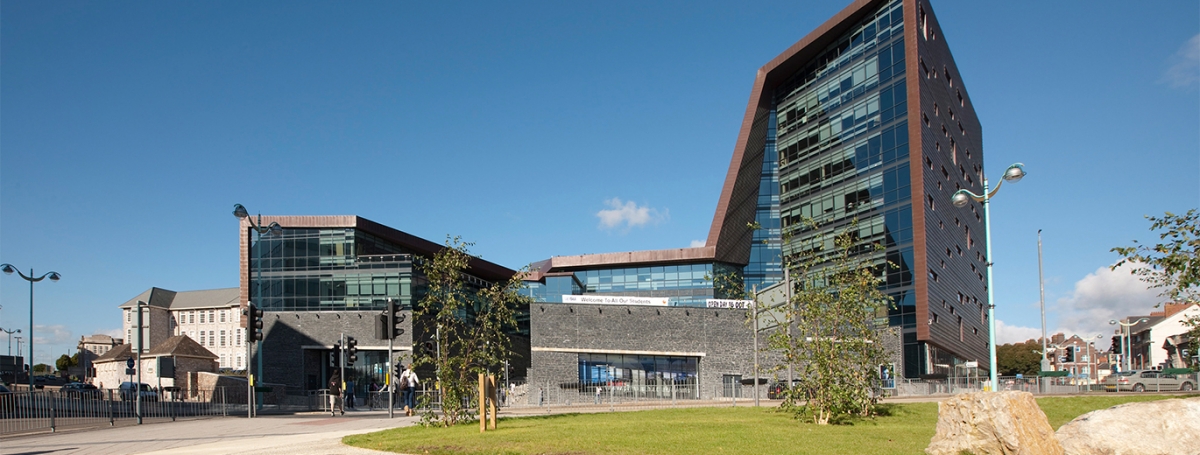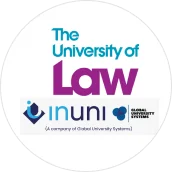
Home > Study in UK > University of Plymouth > Bachelor of Science (Hons) in Marine Biology (Optional Placement)
Bachelor of Science (Hons) in Marine Biology (Optional Placement)
 University of Plymouth, UK
University of Plymouth, UK

GBP 16300
Annual Tuition Fee

Free
Application Fee

36 months
Duration

6
IELTS

76
TOEFL

75%
Min GPA
Program Overview
In this hands-on degree, one of the best in the UK and with an international reputation, you’ll explore the diversity of marine life from coastal margins to the deep sea and gain an in-depth understanding of the biology of marine organisms. Teaching takes advantage of the South Devon coast as well as some of Europe’s best marine facilities – so you’ll have the opportunity to not just experience marine biology but to practice it at the highest levels in both the laboratory and out in the field.
You'll gain an understanding of marine life at the level of the biology of organisms – ranging from microbes found on coral reefs, the physiology and behaviour of marine vertebrates, to the biology of the marine algae that underpin the vast majority of other marine life. The aim of the degree is not only to teach you about marine biology, but to equip you with the practical, intellectual and scientific skills to be a practising marine biologist.
Key Features
- In the 2019 National Student Survey, 100 per cent expressed overall satisfaction with the course; 96 per cent of students felt staff on this course were good at explaining things; 100 per cent felt that the staff made the subject interesting and 95 per cent found the course intellectually stimulating.*
- Explore the full diversity of marine life, from microscopic plankton to iconic marine mammals. Study marine organisms from every angle including how they work, develop and behave and where they are found, how they have evolved and what the future holds for them.
- Study marine life in the wild with access to the beautiful and varied Devon and Cornwall coastline. A recent World Wildlife Fund report highlighted the South Devon coast – which can be reached on foot from campus – as the area of highest marine biodiversity in the UK.
- Benefit from a strong emphasis on the biology of marine organisms, experimental design, practical and field skills in the lab and at sea.
- Choose optional modules which interest you, such as Scientific Diving which allows suitably qualified students (HSE SCUBA or equivalent) to develop industry and research-relevant skills in measurement and monitoring in the underwater environment using professional SCUBA and related techniques.
- Access the University’s research vessels based in the Plymouth Sound Special Area for Conservation and our Marine Station.
- LABplus is a unique open access laboratory and resource centre designed for students studying science and engineering courses. The lab provides a flexible workspace, computing facilities, specialist software, access to microscopes, microscope cameras and bespoke resources.
- Benefit from our reputation as an international centre for marine research. Our expert teaching staff collaborate on many varied research projects – one of the many reasons why 100 per cent of our graduates said that our staff made the subject interesting (source: UNISTATS).
- Opportunities to gain extra experience working in one of the marine research organisations located in Plymouth, alongside your studies. The University enjoys strong links with the internationally renowned marine research establishments based in the city, including the Diving Diseases Research Centre, Plymouth Marine Laboratory, the Marine Biological Association of the UK and the Sir Alister Hardy Foundation for Ocean Science.
- Increase your knowledge and apply your skills in an international setting, with two residential field courses abroad (France and Portugal) that give you the chance to study marine organisms not found in UK waters.
- Take the opportunity to gain experience and learn new skills in an optional placement in your third year.
- Widening your knowledge in an area of interest with a major personal research project conducted in your final year.
- Develop a wide range of skills that will prepare you for your chosen career and make you attractive to employers – learn how to ask and answer research questions, and learn how marine biology research gets funded in the UK in a unique role play event. There is also the opportunity to gain the HSE Professional SCUBA commercial diver qualification, for those with a suitable background in diving.
Additional Information
Program Level 3-Year Bachelor's Degree
College/University Processing Time 28 Days
Program Format Full-Time
Post-Study Work Visa (PSWV) 
General Admission Requirement
Academic Requirement
- Minimum Level of Education Required: To be accepted for this program, students must have Standard XII Higher Secondary Certificate.
Similar Programs


De Montfort University
Intake Sep 2024

Application Fee

Duration
Test Score
6
IELTS
0
TOEFL
65
Min GPA


De Montfort University
Intake Sep 2024

Application Fee

Duration
Test Score
6
IELTS
0
TOEFL
65
Min GPA


De Montfort University
Intake Sep 2024

Application Fee

Duration
Test Score
6
IELTS
0
TOEFL
65
Min GPA


De Montfort University
Intake Sep 2024

Application Fee

Duration
Test Score
6
IELTS
0
TOEFL
65
Min GPA


De Montfort University
Intake Sep 2024

Application Fee

Duration
Test Score
6
IELTS
0
TOEFL
65
Min GPA


De Montfort University
Intake Sep 2024

Application Fee

Duration
Test Score
6
IELTS
0
TOEFL
65
Min GPA


De Montfort University
Intake Sep 2024

Application Fee

Duration
Test Score
6
IELTS
0
TOEFL
65
Min GPA


De Montfort University
Intake Sep 2024

Application Fee

Duration
Test Score
6
IELTS
0
TOEFL
65
Min GPA


De Montfort University
Intake Sep 2024

Application Fee

Duration
Test Score
6
IELTS
0
TOEFL
65
Min GPA


De Montfort University
Intake Sep 2024

Application Fee

Duration
Test Score
6.5
IELTS
0
TOEFL
65
Min GPA


De Montfort University
Intake Sep 2024

Application Fee

Duration
Test Score
6
IELTS
0
TOEFL
65
Min GPA


De Montfort University
Intake Sep 2024

Application Fee

Duration
Test Score
6
IELTS
0
TOEFL
65
Min GPA


De Montfort University
Intake Sep 2024

Application Fee

Duration
Test Score
6
IELTS
0
TOEFL
65
Min GPA


De Montfort University
Intake Sep 2024

Application Fee

Duration
Test Score
6
IELTS
0
TOEFL
65
Min GPA


De Montfort University
Intake Sep 2024

Application Fee

Duration
Test Score
6
IELTS
0
TOEFL
65
Min GPA


De Montfort University
Intake Sep 2024

Application Fee

Duration
Test Score
6
IELTS
0
TOEFL
65
Min GPA


De Montfort University
Intake Sep 2024

Application Fee

Duration
Test Score
6
IELTS
0
TOEFL
65
Min GPA


De Montfort University
Intake Sep 2024

Application Fee

Duration
Test Score
6
IELTS
0
TOEFL
65
Min GPA


De Montfort University
Intake Sep 2024

Application Fee

Duration
Test Score
6
IELTS
0
TOEFL
65
Min GPA


De Montfort University
Intake Sep 2024

Application Fee

Duration
Test Score
6
IELTS
0
TOEFL
65
Min GPA
Tuition Fee
The values given below are estimated figures, excluding extra charges like material fee, student activity fees, athletic fees, health care, etc., for courses. To know more, please visit the Programs page.
Average Tuition Fee Per Year
16300
Tuition Fee
(GBP)
Free
Application Fee
(GBP)
9207 Per year
Average Cost of Living
(GBP)
The living costs include the total expenses per month, covering accommodation, public transportation, utilities (electricity, internet), books and groceries.
Check program website for more information about funding options.
Not sure what you are looking for?
Don’t worry, we are here to help.
Popular Universities to Study Abroad
World class education waiting for you.
-University-of-Gloucestershire-Francis-Close-Hall.png)
England, UK • 59 Programmes
Tuition Fee : GBP 15000 - 15000 / year

England, UK • 392 Programmes
Tuition Fee : GBP 15000 - 18000 / year



England, UK • 15 Programmes
Tuition Fee : GBP 11000 - 18000 / year
Top Places To Study In Canada
Province wise Popular university and colleges for Studying abroad.
Popular English Language Proficiency Exams
Blogs and Articles
Study in UK Blogs & Articles
Universities in Leeds (UK) for International Students
Updated on • Mar 15,2024 11:51 AM IST • UK
Updated on • Mar 15,2024 11:13 AM IST • UK
Top Courses to Pursue in the UK After 12th
Updated on • Feb 28,2024 11:49 AM IST • UK
MBA in UK without GMAT: Top Universities, Eligibility, Cost
Updated on • Feb 19,2024 05:07 PM IST • UK
Masters (MS) in UK: Best Universities, Courses, Fees, Eligibility for Indian Students
Updated on • Feb 19,2024 04:44 PM IST • study in the UK
UK Universities Accepting 6 & 6.5 IELTS Band Score for Masters
Updated on • Feb 20,2024 10:11 AM IST • UK
Duolingo Accepting Universities in UK
Updated on • Feb 20,2024 10:20 AM IST • UK
Documents required for admission in UK
Updated on • Feb 20,2024 10:24 AM IST • study in the UK
Updated on • Feb 20,2024 10:15 AM IST • study in the UK
MBBS in UK: Colleges, Fees, Eligibility and Scholarships
Updated on • Feb 09,2024 05:38 PM IST • UK
Top Reasons for UK Student Visa Rejection
Updated on • Feb 08,2024 04:46 PM IST • UK
6 most popular cities for international students in the UK
Updated on • Feb 08,2024 03:55 PM IST • UK
Cost of Living in UK for International Students in 2024
Updated on • Feb 07,2024 11:31 AM IST • study in the UK
Best universities in UK for MS in Computer Science
Updated on • Mar 15,2024 01:28 PM IST • UK
Universities Offering Masters (MS) in Business Analytics in UK
Updated on • Feb 08,2024 10:30 AM IST • UK
TOEFL Accepted Universities in UK
Updated on • Jan 31,2024 04:34 PM IST • TOEFL
Updated on • Jan 24,2024 05:22 PM IST • UK
PTE Accepting Universities in UK
Updated on • Dec 12,2023 06:00 PM IST • UK
MBA in Finance in UK: Check Universities, Eligibility, Admissions Process & Scholarships
Updated on • Nov 14,2023 12:43 PM IST • UK
Updated on • Nov 07,2023 12:37 PM IST • study in the UK






